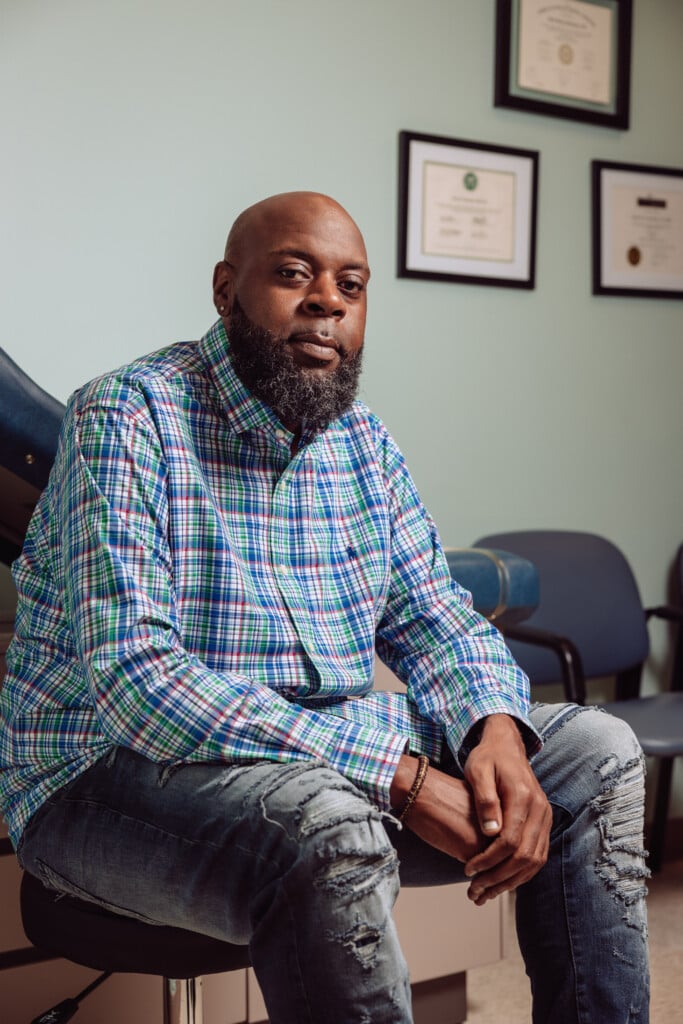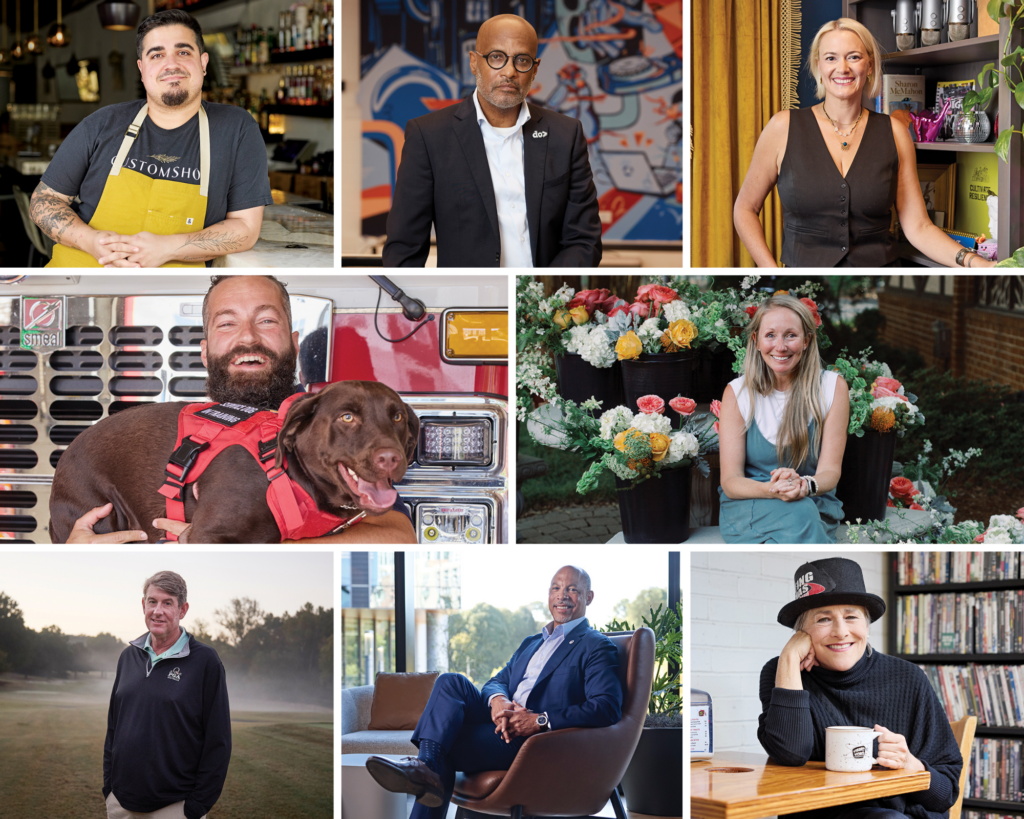When Standard Cancer Treatments Failed, He Found a Promising New Therapy Here
In Partnership With Carolina BioOncology Institute

When Joe Greene was diagnosed with stage 3 colon cancer at 40 years old, he knew he was part of a larger story: Black men have the highest rates of colorectal cancer in the United States. Greene insisted his story would change the narrative, so be became a colon cancer awareness advocate. He advises everyone, especially Black men, to schedule colonoscopies that may save their lives and to discuss their risk with doctors.
“You’ve got to speak up for yourself,” says Greene, who recently authored a book on the importance of cancer screenings. “If you don’t advocate for yourself, who will?”
Greene applies this same advocacy to his cancer care. When standard treatments overwhelmed his body, Greene pursued something different. He enrolled in a clinical trial at Carolina BioOncology Institute in Huntersville, and now he’s among the first people in the world to receive the benefits of a promising new immunotherapy.
***
Shortly after his diagnosis in 2021, Greene began chemotherapy in his hometown of Asheville. The treatment made him so sick that he lost 100 pounds. Greene completed one six-month round of chemotherapy and an eight-week course of radiation, but he decided not to finish the second round of chemo. He asked his doctor for another option.
“My doctor said that this was all they’ve got to offer me at this time,” Greene says. “And I was like, ‘Well, I’m not doing it. I can’t do it. Mentally, I can’t put myself through that again.’”
Greene researched options and traveled to discuss clinical trials with oncologists at a prominent cancer hospital. They guided him to a resource much closer to home: Carolina BioOncology Institute. The center runs phase-one immunotherapy clinical trials, including the trials found at major cancer centers. There, clinicians reviewed Greene’s medical records to match him with the right trial.
“We were excited when we met Joe and realized we had a slot in an open clinical trial that he was a good fit for,” says Sherene Banawan, PA-C, a physician assistant at Carolina BioOncology Institute. She consulted Greene about the opportunities, as well as the demands, of a clinical trial, which involves more monitoring and a greater time commitment than standard therapies. “It’s not a decision to be taken lightly,” Banawan adds.
Greene decided: He was ready to enter the immunotherapy clinical trial.
***
Immunotherapy works differently than chemotherapy. When chemotherapy attacks cancer cells, it harms healthy cells, too, which can cause side effects like nausea, vomiting, and hair loss. Immunotherapy, however, teaches the immune system to target cancer cells, which results in fewer and less severe side effects. This has been a game-changer in cancer care, as researchers discover new ways to use immunotherapy to treat more types of cancer.
Greene’s been on the clinical trial for five months, and he’s regaining strength. He’s able to enjoy eating again, and he celebrated a five-pound jump on the scale at his last appointment.
“Here, [immunotherapy] is not as intense as regular chemo. Even though some of the machines and set-ups look the same, it’s not as intense,” Greene says. “I like the staff here; I like the vibe here. You want to be somewhere you can be comfortable.”
As a small, independent center, Carolina BioOncology Institute gives patients more one-on-one attention than bigger hospitals can offer. Greene says that he feels heard and understood by his care team there. He continues to urge other Black men to speak up to be heard, too, to seek the care they need. He shares his story to share a bigger message: Self-advocacy can be life-saving.
“Keep pushing. Definitely speak up,” Greene advises. “If you feel like something isn’t right, speak up and ask questions.”
If you’re a patient or referring physician who’d like to learn more about clinical trials at Carolina BioOncology Institute, please call 704-947-6599 or complete an information request form.








